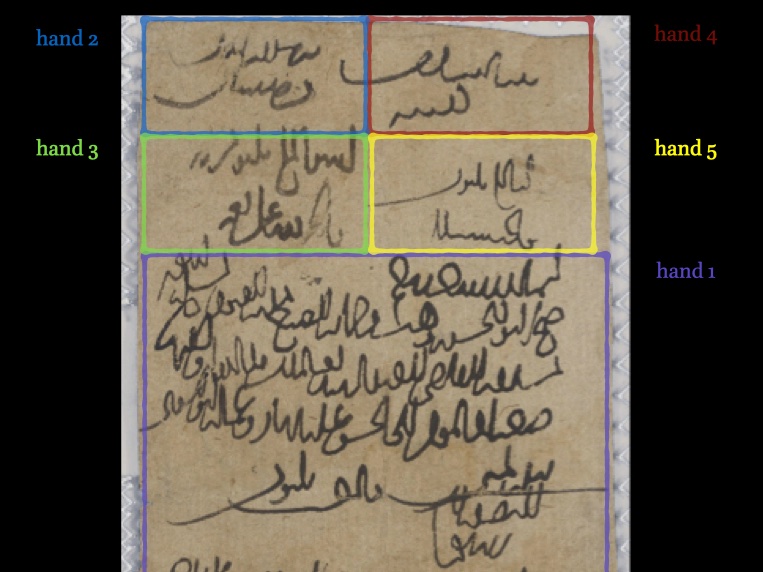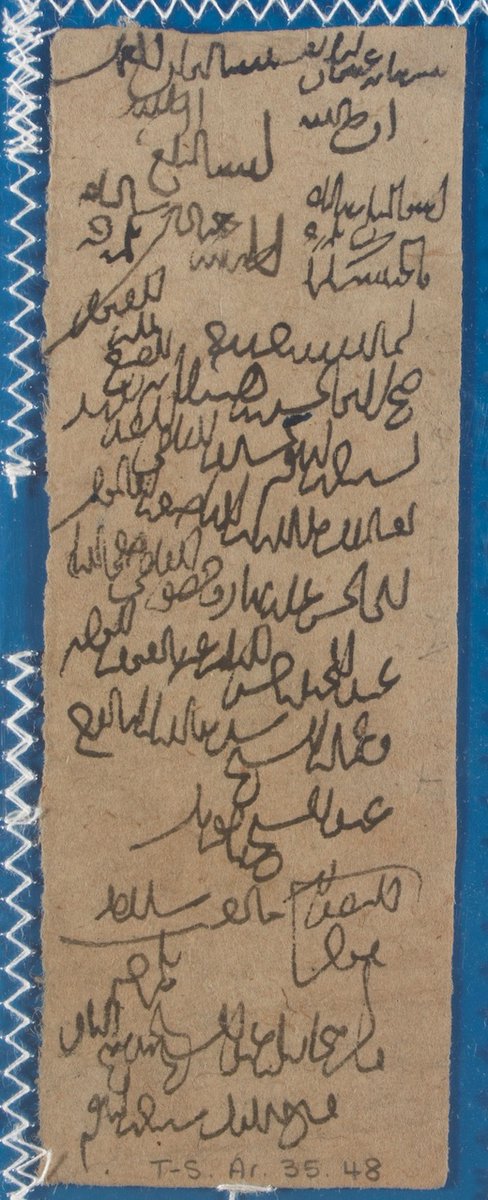Multihanded documents for your #fragmentfriday! I like these, despite their illegibility: they suggest that bureaucracy was not a modern invention.
By bureaucracy, I don't mean annoying paperwork, though there was some of that, but regularity and predictability of procedure. /1
By bureaucracy, I don't mean annoying paperwork, though there was some of that, but regularity and predictability of procedure. /1
This is a Fatimid tax receipt from 1015 (405H).
It's housed @theULSpecColl. There are others at @JTSVoice and @egyptlibrary. /2
It's housed @theULSpecColl. There are others at @JTSVoice and @egyptlibrary. /2
Fatimid tax receipts are *very* difficult to decipher. The cashiers didn't care about you, or me, or my sorry attempts to read their writing.
This makes me sad, though it has also helped me kill hours that would otherwise have been consumed with pandemic anxiety./3

This makes me sad, though it has also helped me kill hours that would otherwise have been consumed with pandemic anxiety./3
But our cashier's colleagues, who were equally indecipherable, would have had little difficulty reading his writing. They're the ones at the top of the receipt. There are four of them. If you spend some time staring, you can start to tell their hands apart. /4
There are five hands in all on this text.
This diagram is of a different tax receipt, but the boxes work equally well. They will work when superimposed on any other Fatimid tax receipt — which is part of my point. /5
This diagram is of a different tax receipt, but the boxes work equally well. They will work when superimposed on any other Fatimid tax receipt — which is part of my point. /5
Five hands on each document in an identical series reflect the existence of a regular bureaucratic procedure.
The process would have looked like this: /6
The process would have looked like this: /6
The tax farmer gets a tax payment from peasants in the Fayyūm. The tax farmer gives the money to the cashier. The cashier writes the receipt while the qadi and the tax inspector look over his shoulder. /7
This cashier is a Copt named Mikhaʾil ibn ʿAbd al-Masiḥ. The agrarian administration of Egypt was staffed disproportionately by Christians for the first five Islamic centuries, reflecting the demographics of the countryside. This one is tired from writing so many receipts! /8
The cashier writes the amount and the date. He then sends the payment and receipt to the regional tax bureau, where a supervisor checks the amount, makes a note (hand 2), asks the registrar to record the payment in the archive, and has the registrar make his own note (hand 3)./9
This is the first control against embezzlement or other funny business: the amount the tax bureau receives has to match the amount the cashier (hand 1) had written on the receipt. /10
But that's not enough. The officials in the regional tax bureau then sent the money and receipt to the regional office of tax *supervision*. The head supervisor (hand 4) checked the amount; the registrar noted the payment in the archive and scribbled on the receipt (hand 5). /11
The second control was now complete. That's bureaucracy for you: one receipt, 5 hands, 8 officials, 3 offices.
Nearly 200 such receipts have survived, all laid out identically. https://www.lib.cam.ac.uk/collections/departments/taylor-schechter-genizah-research-unit/fragment-month/fragment-month-april-0 /12
Nearly 200 such receipts have survived, all laid out identically. https://www.lib.cam.ac.uk/collections/departments/taylor-schechter-genizah-research-unit/fragment-month/fragment-month-april-0 /12
This regularity may surprise those who, like Max Weber, thought bureaucracy was an invention of early modern Europe. But if you study the ancient and medieval Near and Middle East, you know the region developed sophisticated administrative processes much earlier. /13
Next week, I'll post a different multi-handed bureaucratic document, a palace memorandum from Cairo dated 1049–50 (441H). Instead of the scribbly hands of unknown regional tax officials, this one contains the signature of a Fatimid vizier! /end

 Read on Twitter
Read on Twitter







